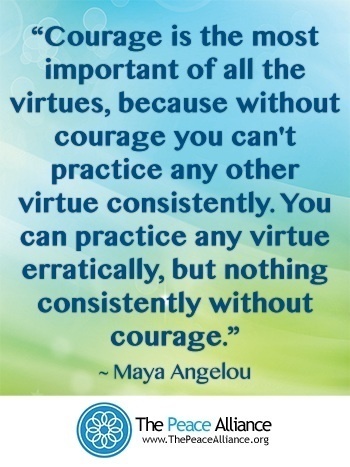Stop Telling Women What They Aren’t Capable Of, by Kelly Ellis, Medium
Masha Yudin stashed this in Career - women
Stashed in: Women, @troutgirl, Awesome, Sexism, Learn to program., XX, Medium, Women in Tech, Gender
"I somehow missed the memo about nature vs. nurture having been definitively solved. The truth is that there’s no way to tell whether women are inherently biologically suited to code. We know that school-age girls outperform boys in math and science, which is counter to this claim. Perhaps if young girls were given construction, spatial, and logical toys while young boys were encouraged to play house, build friendships, and act out parenting, these “natural” strengths and affinities would be reversed (I’d be willing to bet that they definitely would be, if we treated biological girls as we currently treat boys and vice versa). Improving CS education for girls is itself likely to improve their affinity for coding, or help girls discover natural logical and problem-solving ability that they already possess. I grew up enjoying logic puzzles of all types, and I enjoy coding more than many other things. Can we please refrain from antiquated generalizations about women’s supposedly innate abilities or lack thereof?"
Well said. I also appreciate this point of hers:
Women who do make it into the so-called pipeline leave the industry at much higher rates than men. 57% of women who enter careers in the technology industry end up quitting. Of those women, 38% report that “hostile macho culture” was a contributing factor to their decision to quit. 27% report compensation as a factor. One in three professional tech women report encountering dismissive attitudes from colleagues. Keep in mind that because these are current numbers, the vast majority of these women chose to pursue careers in technology before it was popular to advocate for teaching girls CS or equality for women in the field. Given their willingness to overcome the many hurdles—not receiving the same encouragement boys get, sexism in the industry, etc.—they are likely to be more passionate about tech than the average engineer. And they are getting discouraged to the point of quitting. If we don’t solve the retention issue, fixing the pipeline isn’t going to get us very far.
The original essay to which this is a rebuttal was written by a non-technical older white female, I believe she is a freelance columnist at the Phoenix Business Journal and a marketing advisor to hundreds of startups you've never heard of. Hardly seems worthwhile to take the time to respond to what is obvious trolling, but here we are.
So this is what John Doerr, one of the most successful VCs in the history of the profession, once told me. He said founders, especially multiple-time founders, come overwhelmingly from engineering backgrounds -- possibly because that's one of the things he and many other VCs seek in a founder. Successful founders end up with a disproportionate amount of the money and power generated by their enterprises, and their values are the ones transmitted in the corporate culture. So by telling women not to become engineers, you're telling them their chances of becoming the founders of venture-backed businesses is next to nothing.
We did a very fine-grained survey of female founders last year, and discovered that they were overwhelmingly in the e-commerce space... which has few barriers to entry, and tends to require a lot more capital than the software space, leading to fewer great outcomes for the employees. Fashion businesses are driven by fashion, often have horrible margins, and they say you can't really beat Amazon in retail anyway. So by telling women not to become engineers, you're consigning them to some of the least profitable long-term markets.
Finally, it just makes logical sense that most of the power within a company adheres to its CORE FUNCTIONS. When I worked in Chicago many years ago, I was frustrated that technology was rarely considered core to any of the big consumer brands and consulting firms headquartered there -- we were just nerds that you'd keep literally in the basement office. Obviously in Silicon Valley things are different, and most of the power is still in the hands of engineers. Even the types of marketing and product management people we favor here are more quantitative and less from the "creative" side. So by telling women they can be successful without being strong in what's considered a core functional area, you're telling them to remain second-class citizens.
As for the "brain science" argument... bitch please!
I was worthwhile to take the time to respond.Â
Your comment is worthy of a Medium post by itself.Â
Anyone familiar with Alice?
Alice:Â http://www.alice.org/index.php

"Alice is a freeware object-based educational programming language with an integrated development environment (IDE). Alice uses a drag and drop environment to create computer animations using 3D models. The software was developed first at University of Virginia, then Carnegie Mellon (from 1997), by a research group led by the late Randy Pausch." ~Â https://en.m.wikipedia.org/wiki/Alice_(software)
I've never tried Alice but it looks like it would help with learning to program.Â










6:33 PM Feb 09 2016